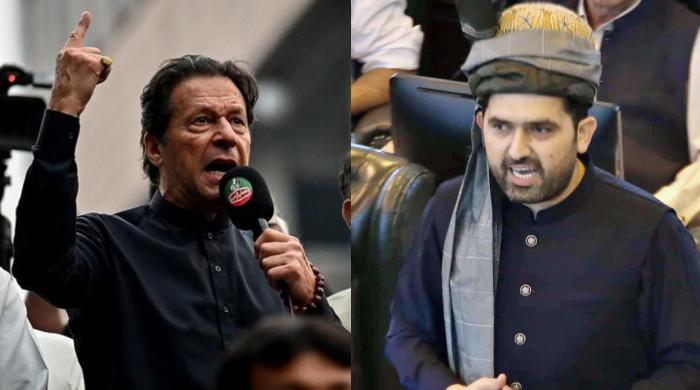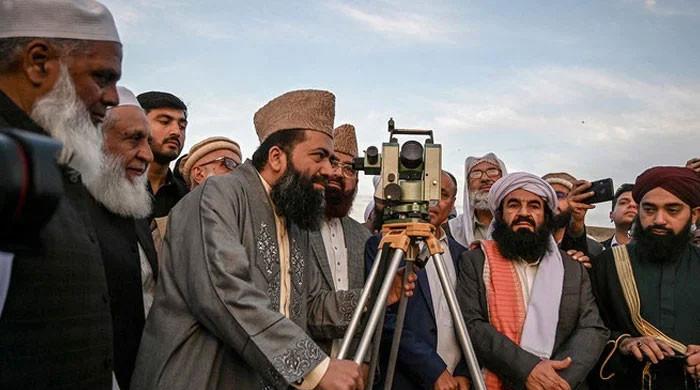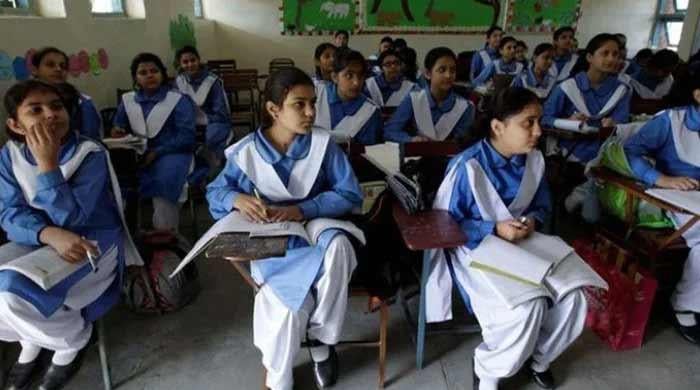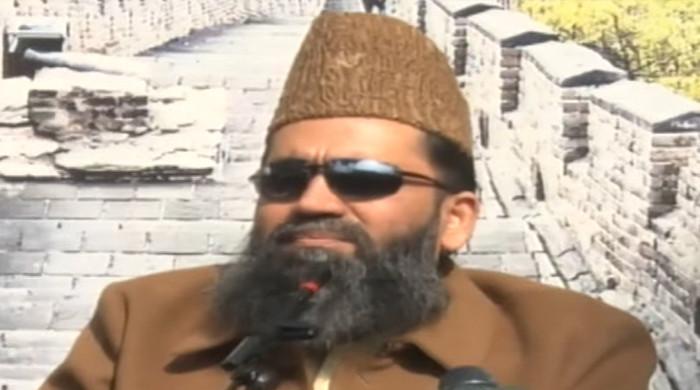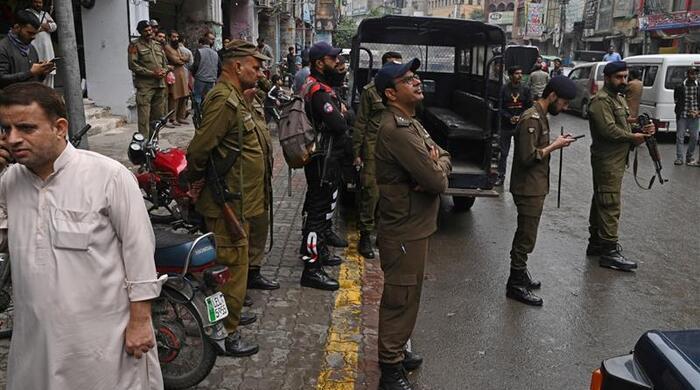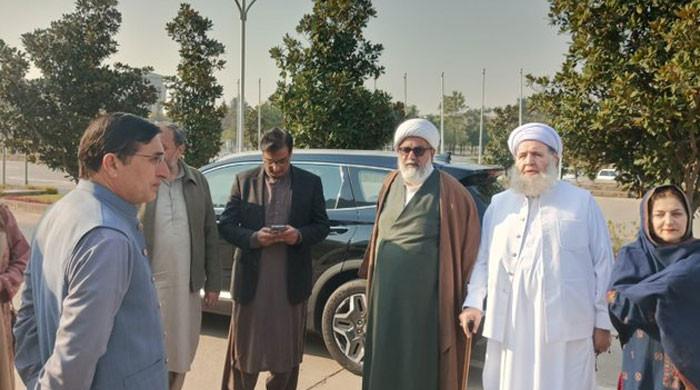Pakistan assessing Chitral security post-terror attack: FM Jilani
"Chitral attack is a standalone act of terrorism and is unrelated to the Afghan interim government," foreign minister says
September 09, 2023
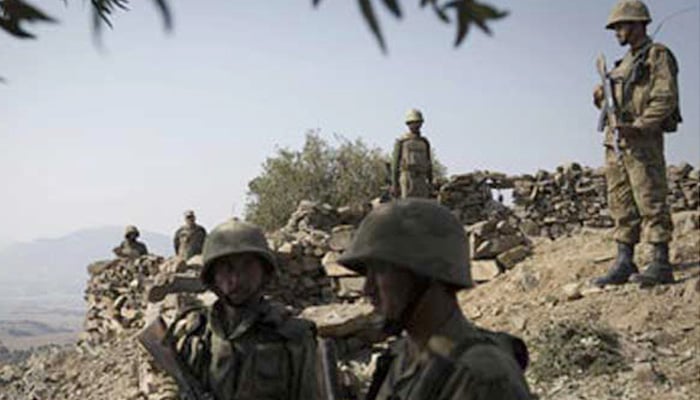
- Minister says terror incident in Chitral is a standalone act.
- Attack unrelated to Afghan interim government, he adds.
- FO says Pak-Afghan border should be one of "peace and amity”.
ISLAMABAD: Caretaker Foreign Minister Jalil Abbas Jilani has addressed the recent security situation in Chitral in the wake of a terrorist attack on September 6, originating from Afghanistan, The News reported on Saturday.
The minister emphasised that this incident is a standalone act of terrorism and is unrelated to the Afghan interim government. He also assured that Pakistan responded decisively to the attackers.
Additionally, the Foreign Office spokesperson, Mumtaz Zahra Baloch, provided further insights into the act of terrorism. Pakistan's stance is firmly rooted in the belief that the Pakistan-Afghanistan border should be characterized by peace and friendly relations, advocating for a border of peace and amicability.
While giving more details regarding the Chitral attack in which four soldiers embraced martyrdom, the spokesperson said Pakistan believes that the border between Pakistan and Afghanistan should be “a border of peace and amity."
"Pakistan is concerned about the recent incident that took place and the terrorist attack on military posts. We are engaged with the interim government of Afghanistan. We have shared our concerns with regard to the terrorist threat against Pakistan that emanates from Afghan soil. This dialogue will continue. All these concerns and developments are relevant to the opening or closure of the border as well,” she said.
When asked about the continued closure of the border at Torkham where talks were continuing at a high level, she responded: “If there is a closure of the border from the Pakistan side, it is not because Pakistan wishes to create difficulties for traders and genuine visitors.
"It happens only when there is a grave security risk and we have to factor in those security considerations whenever the decision to open or close the border takes place. We are in contact with the Afghan authorities to whom we have conveyed our concerns about the security threat that Pakistan faces and our concerns about the recent incident that took place."
With regard to the security situation in Chitral, she said the departments concerned, including the Ministry of Interior and the provincial home department, can share more details.
“As far as the concerns of Pakistan are concerned, these concerns have been shared with Afghan authorities and we expect the Afghan interim government to fulfil its obligations and deny the use of Afghan soil by terrorists for perpetuating acts of terrorism against Pakistan,” she said.
Despite the problems between the two countries, the spokesperson pointed out that Pakistan’s policy on Afghan refugees had not changed.
“We have opened our hearts and our homes for the people of Afghanistan whenever they were in difficulty. With the first wave of Afghan refugees coming to Pakistan forty years ago, they have been living in Pakistan, have been working in Pakistan, they have been studying in Pakistan.
"We would like the Afghan refugees to return to their homeland in honour and dignity for which it is important that conditions are created for their early return. We remain in contact with Afghan authorities as well as with [United Nations High Commissioner for Refugees] UNHCR to work towards that end.”
As far as visas for Afghan nationals are concerned, Pakistan authorities issue visas to Afghans in hundreds, if not thousands, per day.
“And these visas continue to be given by our missions. Before issuing these visas, we have to do our due diligence and anybody who applies for a certain type of visa needs to fulfil the criteria for which he or she is applying,” she explained.
Advanced weaponry
Responding to reports that the Tehreek-e-Taliban Pakistan (TTP) had used the latest weapons in the attack on Chitral, the FO spokesperson responded without mentioning the United States.
"With regard to the arms in Afghanistan, we are concerned that the large amount of weaponry that is available in Afghanistan and has now reached some terrorist entities as well continues to pose a threat to Pakistan, especially when these terrorist entities attack Pakistani civilian and military targets.
We do not want to assign blame on anyone but the situation needs international attention. We hope all relevant parties would understand the responsibility that they have in this respect," Baloch added.
Prior to this response from the Foreign Office, White House National Security Council Coordinator for Strategic Communication John Kirby told the media in Washington that there was no equipment left behind by American forces.
"There was a small amount of equipment and some aircraft at the airport when we finished our evacuation efforts, but they were all rendered unusable as we left," he said.
Kirby explained that the equipment that people were saying the Americans left behind was transferred to the Afghan National Security Forces before the US withdrawal.
"As the Taliban advanced on Kabul and other places throughout the country, they [official Afghan forces] abandoned that equipment, not the US," he added.
Pak-US relations
Commenting on bilateral relations with the United States, the FO spokesperson said: "Yes, Pakistan and the United States have a robust dialogue, in multiple areas, including on security and counterterrorism matters. And we have been communicating with the United States and other partners both in the region and outside the region about Pakistan’s security concerns and our threat perception.
"We hope that all our friends and partners will understand security compulsions that Pakistan has in this region, including the threat of terrorism and the security situation because of the aggressive posture from our eastern neighbours vis-à-vis, Pakistan."
G20 Summit
As India hosts the G20 Summit and presents itself as an important player on the global stage, it should honour its obligations under international human rights and humanitarian laws and bring an end to the egregious human rights violations in Indian Illegally Occupied Jammu Kashmir (IIOJK), said the spokesperson.
She pointed towards the grave and systematic violations of human rights in the IIOJK, which continue to alarm the world's conscience.
"Several international human rights organisations, including Amnesty International, have addressed a joint open letter to invite the attention of the representatives of G20 member states, specially invited countries and international organizations, towards the serious human rights violations being committed in IIOJK.
The letter notes the ongoing repressive policies in IIOJK, including restrictions on freedom of expression, peaceful assembly and association and intensification of crackdown on independent media and civil society groups.”
Indian occupation forces are systematically using abusive counterterrorism and state security laws, such as the Unlawful Activities (Prevention) Act (UAPA) and Jammu and Kashmir Public Safety Act to incapacitate and persecute human rights defenders and dissenters in IIOJK.





